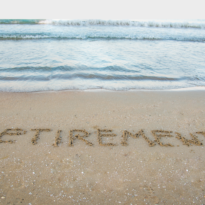Advisers will find it hard to avoid or mitigate all foreseeable harms when looking to protect their clients, Aegon says.
The Consumer Duty, which will require firms to proactively work to avoid causing their clients foreseeable harm. But the assurer’s latest retirement data highlights the impact of external elements, which will make it difficult to protect against all eventualities.
The impact of inflation on clients’ spending power is advisers’ biggest concern within retirement advice, the research from Aegon revealed.
Nearly three fifths (58%) of advisers cited inflation reducing spending power as the most significant foreseeable harm facing clients in retirement, followed by clients running out of money sooner than expected (57%).
A further 56% said having insufficient savings to meet needs posed the biggest harm to clients, while 45% cited clients making poor decisions on accessing benefits. Nearly a fifth (19%) of advisers also mentioned the inability to fund social care.
Against a backdrop of pensions freedom and technical complexity and tax rules retirement advice has become one of the most complex areas of financial planning and Aegon warned that with so many uncertainties, it may be difficult for advisers to fully protect against all.
Steven Cameron, pensions director at Aegon, said: “One of the most notable requirements in the FCA’s new Consumer Duty is firms acting to avoid causing customers foreseeable harm, and this is very important as well as complex for retirement advice.
“Advisers see the most significant foreseeable harms facing clients as the reduction of spending power due to inflation, exhausting money sooner than expected, or having insufficient savings to meet needs. Each of these risks are based on uncertain future events.
“It’s hard to avoid or mitigate all foreseeable harms because some conflict with one another. For example, being too cautious in protecting against running out of money may mean clients take less income than they could, limiting their ability to enjoy the early years of retirement. So it’s vital that advisers agree with clients which harms are most important to avoid, as well as documenting them all.”
Cameron noted that in addition to client circumstances, there is further uncertainty around the economic outlook.
He added: “The number of potential harms and the way they can interact demonstrates the real value of advice at and in retirement.”
[Main image: william-iven-jrh5lAq-mIs-unsplash]






























